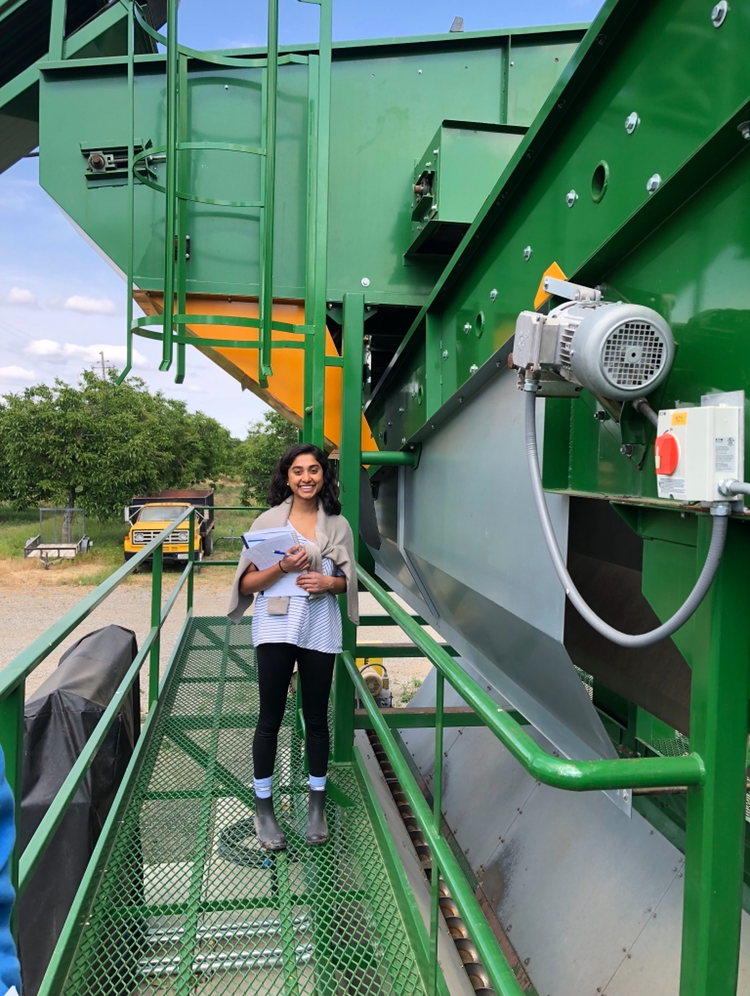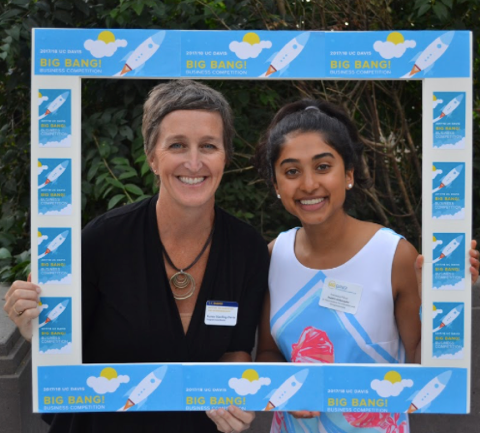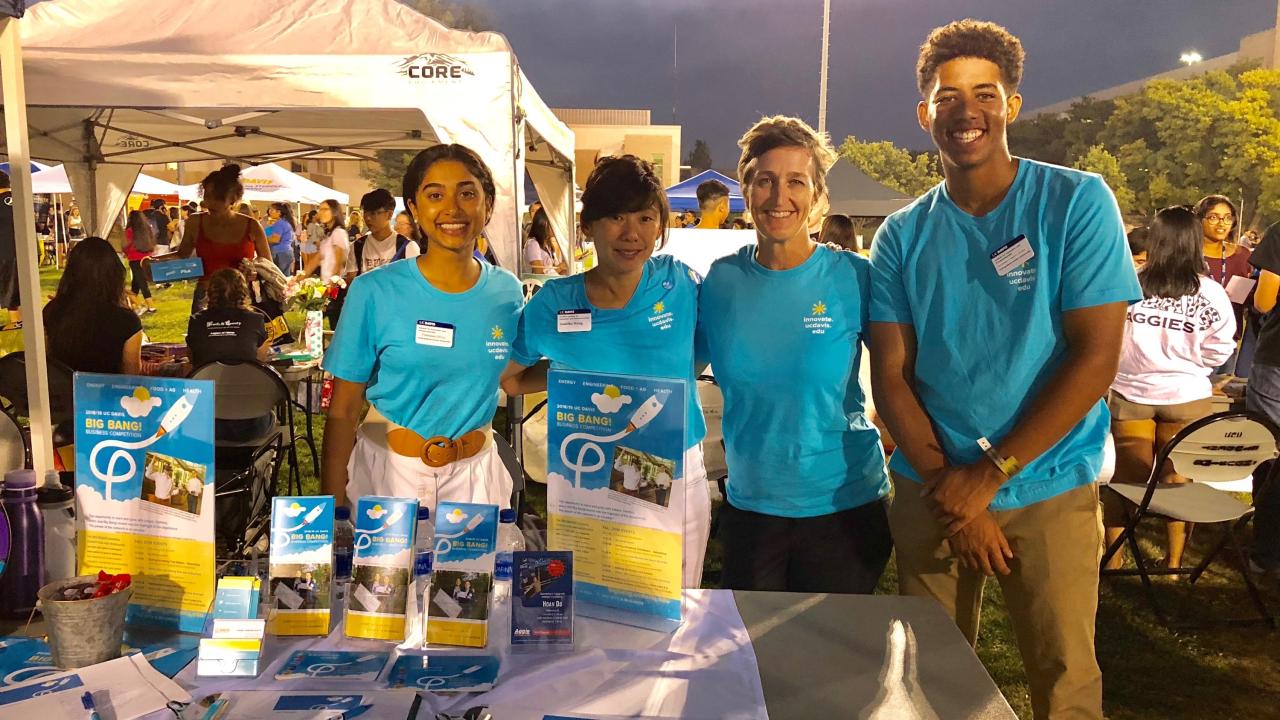When was the last time you thought about where your food came from? Have you considered that every fruit and vegetable at your local grocery store was likely grown and shipped thousands of miles to make its way to you? Increasingly, consumers, governments and crop yields demand that agriculture be sustainably managed.
Sustainable agriculture has become one of the most pressing issues of our time. It impacts global issues such as global water shortage, soil depletion, farmworker welfare, genetic consolidation and feeding a growing population.

The UC Davis sustainable agriculture and food systems major (SAFS) provides students with the necessary coursework, skills and career-development opportunities so they can become sustainable agriculture leaders. After graduation, they often help to accelerate the transition to a sustainable and prosperous future for agriculture. SAFS students typically work as ag tech representatives, biological scientists or start-up farmers.
According to U.S News and World Report, UC Davis is ranked #3 in the world for agricultural sciences, while being located in the agricultural hub of California’s Central Valley. If you’re passionate about sustainable agriculture and feeding a growing population, UC Davis is the place to be.
The SAFS major enables students to pursue their passions and transform them into valuable career opportunities. This was true for UC Davis alum Francesca D’Cruz, who transformed her passion for community development, farmworker welfare and sustainable agriculture into a rewarding career. Now, she works as an associate for inside sales and customer service at Arcadia Biosciences, a biotechnology company in Davis. D’Cruz shared with us how her major prepared her for life outside the university.
D'Cruz's student work experience
- Intern at the U.S Department of Agriculture (USDA)’s Food Inspection Service
- I met a Veterinary Doctor who happened to be a UC Davis alum. They informed me about a position as a global agricultural pioneer that integrates zero-net energy living communities, a student farm, and has strong ties to the ag sector in Sacramento.
- Consultant at an impact consulting firm
- Worked with world-renowned firms, such as Patagonia and Clif Bar, analyzing and recommending sustainable development program metrics.
- Agricultural Sustainability Institute at UC Davis
- Hosted stakeholder dialogues with local government, organic certification board, consultants, and sustainable ag investors for strategic planning.
- Student Ambassador at UC Davis Center for Innovation and Entrepreneurship
- Created the Student Ambassador position for the center.
- Advised and developed student business ideas and connected student-led agribusinesses with U.S investment capital.
How long ago did you graduate?
I graduated in December of 2019 after enrolling at UC Davis in the Fall of 2016.
What was your major?
Originally, I studied biosystems engineering with a focus on agriculture. I absolutely loved the department and the hands-on activities provided by the engineering major. But I quickly realized that flexibility in my coursework was vital, given the interdisciplinary nature of sustainable agricultural solutions.
Why did you choose the SAFS major?
I would credit this to being raised by two parents who work in biotech. This, along with the fact that my family has a long lineage of coffee and tea production in India, really instilled a wonder for agricultural production in me at a young age.
Then, growing up near an agricultural reserve in Maryland really transformed my interest into a passion. It taught me that agricultural production is fundamental to human welfare. During this time, I was exposed to the negative impacts on our water resources resulting from agricultural runoff.
These experiences, tied to my interests in farmworker welfare, sustainable ag, and environmental remediation, along with the flexibility to curate my coursework within the SAFS major, led me choose SAFS at UC Davis.
How has the SAFS major prepared you for your career?
The SAFS major taught me that agriculture and food systems are rooted in community. It is estimated that by 2050, the world will have to increase food production by 70 percent in order to feed a growing population, and sustainable food systems are really the only way to achieve this.
The SAFS major prepared me for a career path in sustainable ag because I had many opportunities that ranged from student business internships to building relationships with large-scale almond agribusinesses to strategizing with local farmers.
The SAFS major enabled me to partner with organizations to achieve measurable increases in crop yields, create sustainable water-use plans, integrative pest management strategies, and manage pollinators. This major was the perfect harmony of all of my passions and interests.

Never once did I feel “spread thin” throughout my educational career. I always viewed my experiences as fundamental to my education. They instilled passion, hope and excitement for my future, and continue to do so to this day. Rather than being a purely abstract study, the sustainable ag and food systems major at UC Davis really allows you to gain real-world, career-oriented experience that prepares you for a rewarding career.
Lastly, one of the most rewarding aspects of this program is that, due to climate change, sustainability is gaining greater importance. Sustainable solutions are ready to be discovered — the solutions aren’t always clear-cut, and agricultural itself is highly contextual. But this is exciting because investigation and creativity follow you at every step!
What is your advice for students interested in the Sustainable Ag & Food Systems major?
Seek out those obscure opportunities — they’ll help you unearth your interests, connect with inspirational people, and put you on the career fast-track! UC Davis faculty has been so supportive and encouraging and has connected me with people and opportunities that have opened many doors for me (that I kept knocking on!).
Pablo Loayza is an environmental planning student and writer with the Office of Strategic Communications at UC Davis.
